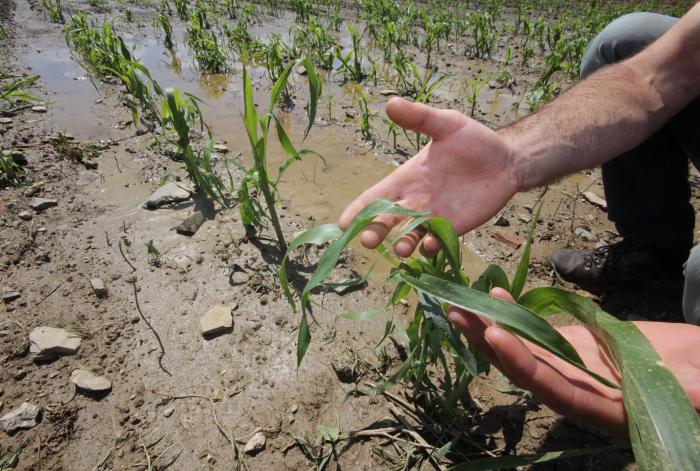The Ministry of Agriculture presented the proposed act, which enables member states to ban the cultivation of GMOs. The EU directive will come into force on the 4th of April.
The EU has given its citizens two choices. The state can require that producers are exempt from approval immediately upon applying for GMO cultivation. Or, they wait for the approval of GMO cultivation and then, by choice, ban the cultivation, says Anamarija Slabe from the Institute for Sustainable Development, which is also part of the movement for organic farming IFMAO (International Federation of Organic Agriculture Movements). The cultivation of GMOs has already been banned in a number of EU countries even before the passing EU directive.
"Only one genetically modified plant is cultivated in the EU, and that's Monsanto's corn MON 810. Its cultivation was banned before the adoption of the EU directive in nine EU countries," says Slabe. The above-mentioned corn is being propagated on several thousands of hectares in Spain, as well as in the Czech Republic and Portugal.
With new legislation Slovenia could ban the cultivation of genetically modified plants. However, the plants could quickly spread into Slovenia if GMOs were allowed in neighboring countries. "The European directive gives states the opportunity, but it does very little to help. Pollen knows nothing about borders. The solution is therefore political and gives governments, who face fierce opposition to GMOs, a few arguments to defend their positions," says Slabe.
EU approves new GMOs
EU's new legislation only refers to the cultivation of genetically modified plants in its member states and not to the use of genetically modified plants for fodder and food. On Friday the European Commission approved 17 genetically modified plants for fodder and animal feed. According to Slabe, ten of those are new, while the other seven GMOs got their permits extended. Among them are 11 Monsanto corn seeds.
"There has been much criticism in the past eight years on the system of approving GMOs. There have been some improvements in the past few years. When European Commission President Jean-Claude Juncker was still a candidate for commission president, he said he was going to strive for a more democratic process of approving GMOs, as many Europeans openly oppose their cultivation. However judging by the current system , it is the European Commission which approves GMOs. Juncker has not kept his word. Nothing has changed," added the head of the Institute for Sustainable Development, Ana Marija Slabe.
Gregor Cerar, MMC;
translated by K. J.


































































